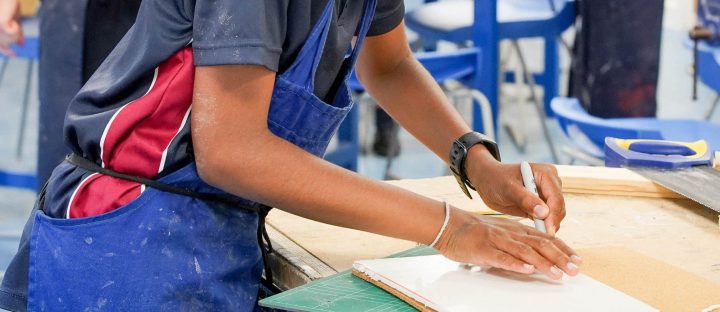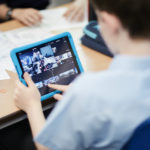Subject coordinators in Science, Design & Technology and Computing work together to ensure pupils at Swanbourne House are equipped with skills and inspired by possibilities in a rapidly evolving world. Working within outstanding facilities, pupils are encouraged to collaborate on, and experiment in, practical elements of these subjects.
An invigorating curriculum across Science & Technology promises to be engaging and thought-provoking, with pupils often set problem-solving tasks that nurture teamwork within a group. Science is taught in laboratories across the three disciplines of Biology, Chemistry and Physics from Year 4. it is from this point that the fundamental aspects of each subject are taught. Pupils take part in hands-on, increasingly complex experiments and learn some of the key principles behind the work of the world’s greatest scientific minds.
 The style of teaching used in Design & Technology is practical and project based. The curriculum is based on a series of termly or half termly projects. The children start their projects with design investigation, 3D drawings and planning. Each project has a focus on one or more specific materials. Following the build stage pupils learn to conclude each project with reflection and critical evaluation. By the time the children reach their final year at Swanbourne, they will have developed an appreciation of the relationship between design, materials, manufacture and marketing.
The style of teaching used in Design & Technology is practical and project based. The curriculum is based on a series of termly or half termly projects. The children start their projects with design investigation, 3D drawings and planning. Each project has a focus on one or more specific materials. Following the build stage pupils learn to conclude each project with reflection and critical evaluation. By the time the children reach their final year at Swanbourne, they will have developed an appreciation of the relationship between design, materials, manufacture and marketing.
In Computing, pupils study the principles of Computer Science, Digital Literacy and Information Technology. It is a highly practical subject, in which intervention and resourcefulness are required. Pupils are given opportunities to share their work beyond school by taking part in worldwide coding initiatives and entering  competitions. As pupils progress through the school, they produce more complex programs, using text based programming languages. Micro:bits and Raspberry Pis are used to facilitate physical computing, in addition to programming with Minecraft. Pupils’ work from the Upper School is increasingly project based and nationally recognised for its excellence.
competitions. As pupils progress through the school, they produce more complex programs, using text based programming languages. Micro:bits and Raspberry Pis are used to facilitate physical computing, in addition to programming with Minecraft. Pupils’ work from the Upper School is increasingly project based and nationally recognised for its excellence.
